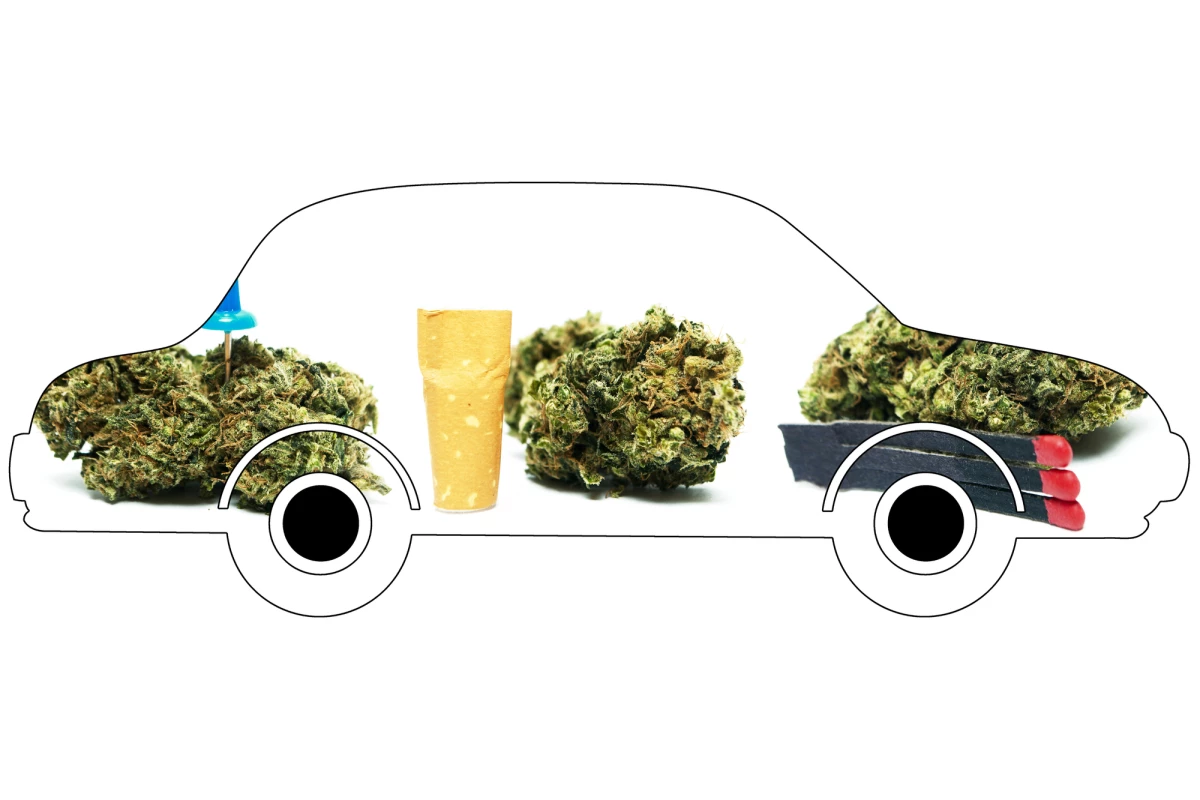A new meta-study, led by researchers from the University of Sydney’s Lambert Initiative, has concluded blood or saliva THC concentrations are not effective ways to measure cannabis-induced driving impairment. The findings suggest the need for more nuanced impairment tests to be developed instead of working towards some kind of roadside marijuana breathalyzer akin to how alcohol is treated.
“The increase in legal recreational use of cannabis across multiple jurisdictions worldwide is also making the need for reform of cannabis-driving laws more urgent,” says Iain McGregor, academic director of the Lambert Initiative for Cannabinoid Therapeutics at the University of Sydney. “We clearly need more reliable ways of identifying cannabis-impairment on the roads and the workplace.”
The idea of a marijuana breathalyzer that can detect the presence of THC has been floated for several years. A number of different devices are currently in various stages of development as scientists have figured out ways to accurately correlate THC levels in breath and saliva with THC levels in the bloodstream.
Underpinning all this development is the idea that THC blood levels fundamentally correlate with driving impairment in much the same way we know blood alcohol levels can be associated with impairment. But THC and alcohol are very different drugs, and this new research indicates there may not be a consistent link between blood THC concentrations and driving impairment.
The new research pooled data from 28 published studies comprising 822 different driving-related outcomes. The overall finding was there seems to be no consistent link between THC biomarkers and driving impairment. When regular cannabis users were specifically isolated from occasional users the correlation was even weaker, suggesting impairment is especially challenging to measure in those who frequently imbibe marijuana.
“Higher blood THC concentrations were only weakly associated with increased impairment in occasional cannabis users while no significant relationship was detected in regular cannabis users,” says lead author Danielle McCartney. “This suggest that blood and oral fluid THC concentrations are relatively poor indicators of cannabis-THC-induced impairment.”
McCartney does note these findings do not imply there is no relationship between impaired driving and THC intoxication. Instead, the data simply reveals THC levels in blood or saliva are inconsistent correlates for the kind of intoxication that could lead to driving impairments.
The problem raised by the new research is that many countries in the world have already instituted legal blood plasma THC limits for driving under the influence of cannabis. These thresholds can span anything from one nanogram of THC per ml to over 10 nanograms per ml, either in oral fluid or blood.
McGregor says we should not think about cannabis intoxication in the same way we consider alcohol. Whereas alcohol intoxication studies show consistent associations between blood alcohol levels and driving impairment, the same cannot be said for cannabis.
A regular cannabis user may display no signs of impairment while registering high THC blood concentrations, whereas another more occasional user could show extremely low THC levels while being entirely intoxicated and unfit to drive. Essentially, THC intoxication is a more complicated metabolic scenario than alcohol intoxication, and blood or saliva THC levels can be very distinct from acute THC levels in the brain.
“THC concentrations in the body clearly have a very complex relationship with intoxication,” says McGregor. “The strong and direct relationship between blood-alcohol concentrations and impaired driving encourages people to think that such relationships apply to all drugs, but this is certainly not the case with cannabis.”
An interesting finding in the study was the lack of any consistent link between driving impairment and subjective reports of intoxication. What this suggests is that while under the influence of cannabis a driver may be unable to subjectively evaluate their own fitness to drive.
Thomas Arkell, a co-author on the new study, says the findings affirm a need for research into more objective measures of impairment. He points to the ongoing development of smartphone apps to help measure impairment as a possible way to help individuals better understand their subjective fitness to drive.
“Individuals are better to wait a minimum length of time, between three and 10 hours, depending on the dose and route of administration, following cannabis use before performing safety-sensitive tasks,” says Arkell. “Smartphone apps that may help people assess their impairment before driving are currently under development and may also prove useful.”
The new study was published in the journal Neuroscience & Biobehavioral Reviews.
Source: University of Sydney




